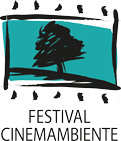Festival Cinemambiente
AWARDS WINNERS
➤ Asja Award for the best documentary in the international section, awarded by the jury composed of Alex Bellini, Massimo Bernardi, Johannes Kostenzer, Petrula Veljanovska, Ottavia Virzì, to:
The Town that Drove Away by Grzegorz Piekarski, Natalia Pietsch (Poland 2025, 70′)
with the following motivation:
In a slow and unagitated way, the film shows that people cannot simply be transplanted.
The narrative takes the viewer to a village that is shaken by excavators and where there is hardly any room for memories. Captured by sensitive camera work and interludes, the centuries-old history of the village is drowned as the dam is filled.
This film leaves us with the question, if Economics legitimate the loss of local ties and personal history.
The jury also awarded a special mention to:
Middletown by Jesse Moss, Amanda McBaine (USA 2025, 110′)
with the following motivation:
The film Middletown – reminds us the importance of civic engagement and education in order to re-build hope for change.
With a beautiful use of archive footage that would have otherwise be forgotten, the film shows the strength of youth and committed citizens when we get proactive we can make the difference in order to challenge big powers.
➤ SMAT Award for the best short film in the international section, awarded by the jury composed of James Berclaz-Lewis, Perturbazione, Valeria Vantaggi, to:
Bloodline by Wojciech Węglarz (Poland 2024, 12′)
with the following motivation:
In the eerie hush of the Balowieka Forest’s frozen frontier, a majestic bison invites the spectator into contemplation. First the dreamlike expanse of the snowy plains, before our gaze, gently guided, settles on the quiet human drama along the militarized border between Poland and Belarus. Through a meticulously woven sonic and visual tapestry, our own ruthless world is gradually revealed – stark and unrelenting, alongside our benevolent watchful guardian. Bloodline beckons us to reckon with the quiet violence of un-natural borders.
The jury also awarded a special mention to:
Hic svnt dracones di Justin Fayard (Francia 2024, 13’)
with the following motivation:
For the skill in moving the audience into a timeless dimension, so very extraneous to our day to day frantic present. Fear of the unknown slowly turns into resonance with the cosmos. This effect is obtained by a masterly painting technique, a mysterious and contemplating soundscape and a narrative tension which never bursts, focusing our attention from a material to a spiritual level.
➤ Premio IREN del pubblico per il miglior documentario in gara nel Concorso internazionale, assegnato dagli spettatori del Festival a:
Blame – Bats, Politics and a Planet out of Balance… di Christian Frei (Svizzera 2025, 122’)
➤ “Gaetano Capizzi” special prize, awarded by the jury composed of Silvana Dalmazzone, Marino Midena, and Giulio Sangiorgio, for Best Film in the Made in Italy section, to:
Valentina e i MUOStri by Francesca Scalisi (Italy, Switzerland 2024, 80’)
With the following motivation:
For its ability to intertwine a gradually unfolding personal narrative, with a broader social dimension—both explored with equal depth and narrative strength. Valentina, in her slow and steady awakening, increasingly resembles a modern-day Greta in her drive to expose ecological harm. Her outcry becomes a voice of identity, expressing a generation—and a social class—deeply affected by environmental injustice.
➤ Slow Food Award, established by the Festival and Slow Food Italia, for the film that best addresses the complex and multifaceted relationship between food, agriculture, and the environment, awarded by the jury composed of Barbara Nappini, Serena Milano, Roberto Burdese, and Piero Sardo, to:
Mut by Giulio Squillacciotti (Italy 2025, 18’)
With the following motivation:
A window opens onto the mountains, offering us breathtaking glimpses of summer. Yet this is no mere postcard. It is the alpine pastureland—mut (meaning “mountain” in the Bergamasque dialect)—where a young family lives through the warm season alongside their animals, producing cheese and carrying forward an ancient tradition that repeats and renews itself year after year. A bond with the past holds strong, while a hopeful gaze is cast toward the future.
Tha hope is embodied in the two protagonists: a young boy who has already learned, with measured maturity, the gestures of livestock farming, and his little brother who follows in his footsteps with carefree joy, nurturing a deep affection for the animals.
Both of them live in spontaneous, authentic harmony with the mountains, while tourists drift in and out of frame like disoriented intruders. The mountain shown through Giulio Squillacciotti’s stunning cinematography may not be easy, but it is perhaps unique in showing humankind how to live in balance and harmony with nature.
➤ Environment and Society Award, established by the Festival and Cooperativa Sociale Arcobaleno, for the film – selected by the Cooperative’s workers – that best intertwines environmental issues with social themes, awarded to:
Valentina e i MUOStri by Francesca Scalisi (Italy, Switzerland 2024, 80’)
With the following motivation:
The director succeeds in capturing beauty and poetry—and in passing it on to us—within a setting that appears discouraging and dramatic, where the “monsters” are not only figments of the imagination but real forces that negatively affect an already-challenging social context. Valentina’s crocheted flowers emerge as a hidden resource within each of us, a symbol of our inner strength to face fears—whether imagined or all too real.
➤ Casacomune Award, established by the Festival and Casacomune, awarded to the film or filmmaker who best conveys themes related to spirituality understood as a dimension deeply connected to the nature we are part of, assigned to:
Abito di confini. Muoversi dietro le quinte del palcoscenico italiano by Opher Thomson (Italy 2025, 40’)
With the following motivation:
For its ability to assert itself – as a frame-by-frame account of a migrant’s journey from east to west across Northern Italy—as a counter-narrative capable of transcending the boundaries of increasingly dehumanizing labels and definitions. A work filled with movement, despite being composed of still images; silent, yet urgent, hypnotic, and laden with questions.

